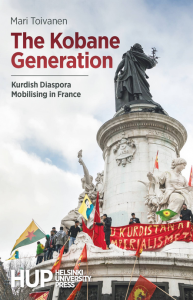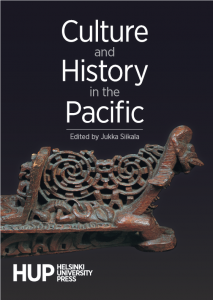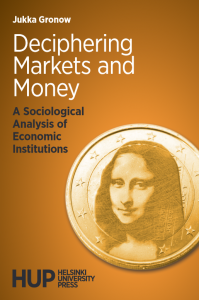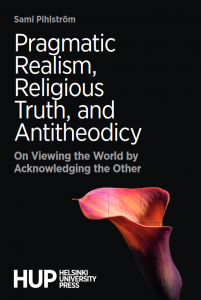Many researchers would like to make their publications available to wider audiences, but open access is not the only criterion they consider when publishing their work. Researchers are also interested in publishing services, particularly ones that enhance the quality of their research, raise the standard of their publication, and help their books reach the right audiences.
(Tämä artikkeli on saatavilla myös suomeksi.)
Text: Anna-Mari Vesterinen & Sanna Rihu (Helsinki University Press)
 Helsinki University Press (HUP) is an open access (OA) academic publisher whose publications are all freely available online. HUP team wanted to find out what researchers appreciate in OA scholarship and what kind of expectations they have when it comes to academic publishers. We also wished to explore whether researchers believe OA publishing involves problems that should be discussed more broadly. For this blog post, six researchers who have published their research through HUP answered a short survey. We also used three similar survey responses collected earlier, as well as correspondence and discussions with a number of researchers.
Helsinki University Press (HUP) is an open access (OA) academic publisher whose publications are all freely available online. HUP team wanted to find out what researchers appreciate in OA scholarship and what kind of expectations they have when it comes to academic publishers. We also wished to explore whether researchers believe OA publishing involves problems that should be discussed more broadly. For this blog post, six researchers who have published their research through HUP answered a short survey. We also used three similar survey responses collected earlier, as well as correspondence and discussions with a number of researchers.
Open access is inclusive to countries otherwise left behind paywalls

 All of the researchers who had published with HUP said that OA had been the key reason for offering their manuscripts to the Press. Their responses highlight the view that OA publications reach a wider audience than traditional printed books or publications locked behind paywalls. Indeed, HUP’s download figures reveal that books and book chapters are viewed and downloaded extensively and geographically widely (see e.g. HUP’s annual report 2021, p. 2).
All of the researchers who had published with HUP said that OA had been the key reason for offering their manuscripts to the Press. Their responses highlight the view that OA publications reach a wider audience than traditional printed books or publications locked behind paywalls. Indeed, HUP’s download figures reveal that books and book chapters are viewed and downloaded extensively and geographically widely (see e.g. HUP’s annual report 2021, p. 2).
In addition to reaching a wide audience, researchers hope that OA allows access to readers in countries and locations that their research discusses. This is deemed especially important when publications focus on Majority World, where paywalls often are an obstacle to accessibility. Four of the surveyed researchers also mentioned that OA is an ethical choice for publishing publicly funded research.
”I ended up sending my book proposal to HUP, because I was particularly interested in publishing in an open access publisher. Free access to scientific knowledge is a matter very close to my heart, and it was one of the major factors affecting my choice to publish with HUP.”
Mari Toivanen (The Kobane Generation, 2021)
”OA publishing has proliferated quickly during the recent years within anthropology, and particularly the need to be accountable to research participants and make results of the research available to them is emphasised.”
Tuomas Tammisto ja Heikki Wilenius. Wilenius and Tammisto were responsible for the republication process of the book Culture and History in the Pacific by Jukka Siikala (ed.).
Publishing services improve the quality and accessibility of publications

 Based on the responses received from the surveyed scholars, researchers expect academic publishers to provide extensive services that improve the quality of their work. They appreciate HUP’s publishing services and, particularly, the importance of copyediting and indexing services was emphasised in the responses. Several respondents pointed out that the quality of HUP’s services matches or even exceed that of the services offered by traditional (commercial) academic publishers.
Based on the responses received from the surveyed scholars, researchers expect academic publishers to provide extensive services that improve the quality of their work. They appreciate HUP’s publishing services and, particularly, the importance of copyediting and indexing services was emphasised in the responses. Several respondents pointed out that the quality of HUP’s services matches or even exceed that of the services offered by traditional (commercial) academic publishers.
They also mentioned the importance of thorough peer review to ensure high quality, although some researchers found the process long and somewhat laborious. However, respondents praised the transparency of HUP’s processes and the smooth and constructive collaboration with the publisher.
In the survey, the researchers also noted the importance of publishers promoting books to reach their target audiences. Book reviews published in scholarly journals were seen as particularly important. As part of marketing books, the HUP team communicates with journals’ editorial staff about new suitable publications and opportunities to request review copies.
”I had heard from my colleagues that HUP’s publishing services are of high quality, including the peer review process and copyediting. My colleagues were right: the editing and publication process of my book fully met my expectations.”
Mari Toivanen (The Kobane Generation, 2021)
”HUP offered valuable assistance related to, for example, language revision and other editing. The publication process was smooth and corresponded to my previous experiences of working with the best traditional publishers.”
Jukka Gronow (Deciphering Markets and Money, 2020)
”I think one important point HUP is already addressing: seeking to promote reviews of new publications. Reviews, I think, are one of the most important, because they are one of the most informative forms of ’marketing’.”
Kenneth Westphal (Kant’s Transcendental Deduction of the Categories: Critical Re-Examination, Elucidation and Corroboration, 2021)
Downsides of open access? No royalties or additional professional qualifications

 The researchers who responded to our questionnaire also mentioned some downsides to OA publishing, most importantly the absence of royalties and concerns about a negative impact on their academic career. Young researchers striving to acquire additional professional qualifications are under pressure to publish through well-known publishers instead of OA channels. Simultaneously, they also face conflicting pressures from universities to make their publications openly available. This means that ultimately the position of researchers in terms of OA publishing depends on whether they hold a permanent post or are on tenure track. In these cases, OA publishing has a different effect on assessment processes in the case of grant-funded researchers or applicants for permanent posts.
The researchers who responded to our questionnaire also mentioned some downsides to OA publishing, most importantly the absence of royalties and concerns about a negative impact on their academic career. Young researchers striving to acquire additional professional qualifications are under pressure to publish through well-known publishers instead of OA channels. Simultaneously, they also face conflicting pressures from universities to make their publications openly available. This means that ultimately the position of researchers in terms of OA publishing depends on whether they hold a permanent post or are on tenure track. In these cases, OA publishing has a different effect on assessment processes in the case of grant-funded researchers or applicants for permanent posts.
Open access academic publishers do not pay royalties because the sales of OA books are small, and the income generated does not cover publication costs. The absence of royalties may be seen as a negative in fields where research outputs are also published by commercial publishers. On the other hand, some researchers publish their books through both commercial and OA publishers. From the perspective of HUP, researchers do not need to commit purely to OA or purely to commercial publishers. There is room for both in academic publishing.
”For the time being, it seems unlikely that the humanities could entirely give up the publication of traditional books published by commercial publishing houses. However, open access publishing activities such as those run by HUP are an important step in the right direction.”
Sami Pihlström (Pragmatic Realism, Religious Truth, and Antitheodicy, 2020)
Further information on open access licenses required

The researchers taking our survey wished for further discussion on open licenses (Creative Commons licenses) and stressed the related expertise of publishers. The researchers found it particularly important to obtain information from publishers on the potential consequences of selecting a specific license on the distribution and utilisation of publications. Accordingly, we have stepped up discussions with researchers on the characteristics of various licenses and increased communication on open licenses through both social media and blog posts (see e.g., ”National research funding organisations’ cOAlition S recommends open access for books and reaches out to research community”, including information on CC licenses).
”Perhaps there could be more discussion on open licenses with the publisher. For a researcher with no prior experience, it can be difficult to understand the opportunities and consequences presented by different licenses.”
Katri Pynnöniemi (ed., Nexus of Patriotism and Militarism in Russia, 2021)
HUP recommends that the authors of books choose a license prohibiting the use of their publication for commercial purposes (CC BY-NC). Nevertheless, the Press permits the use of any license according to the authors’/editors’ wishes. HUP discusses appropriate licenses with the authors of all books. In some cases, it is important to consider whether to allow for example translations into other languages or to require separate permission for them by choosing the CC BY-NC-ND license. As differences between licenses are subtle, the publisher must provide researchers with sufficient support when researchers select open license for their work.
Sources:
- Creative Commons: ”About CC Licenses”.
- Vesterinen, A. (2022): Helsinki University Press Annual Report 2021.
- Vesterinen, A. and Linkola, H.: ”National research funding organisations’ cOAlition S recommends open access for books and reaches out to research community”. Think Open Blog, 14 September 2021.
Books by interviewed researchers:
- Gronow, J. (2020): Deciphering Markets and Money: A Sociological Analysis of Economic Institutions. Helsinki: Helsinki University Press.
- Pihlström, S. (2020): Pragmatic Realism, Religious Truth, and Antitheodicy: On Viewing the World by Acknowledging the Other. Helsinki: Helsinki University Press.
- Pynnöniemi, K. (ed.) (2021): Nexus of Patriotism and Militarism in Russia: A Quest for Internal Cohesion. Helsinki: Helsinki University Press.
- Siikala, J. (ed.) (2021): Culture and History in the Pacific. Second edition. Helsinki: Helsinki University Press.
- Toivanen, M. (2021): The Kobane Generation: Kurdish Diaspora Mobilising in France. Helsinki: Helsinki University Press.
- Westphal, K.R. (2021): Kant’s Transcendental Deduction of the Categories: Critical Re-Examination, Elucidation and Corroboration. Helsinki: Helsinki University Press.
Anna-Mari Vesterinen works as Managing Editor / Communications Manager at Helsinki University Press.
Sanna Rihu works as Communications and Publications Coordinator at Helsinki University Press.
